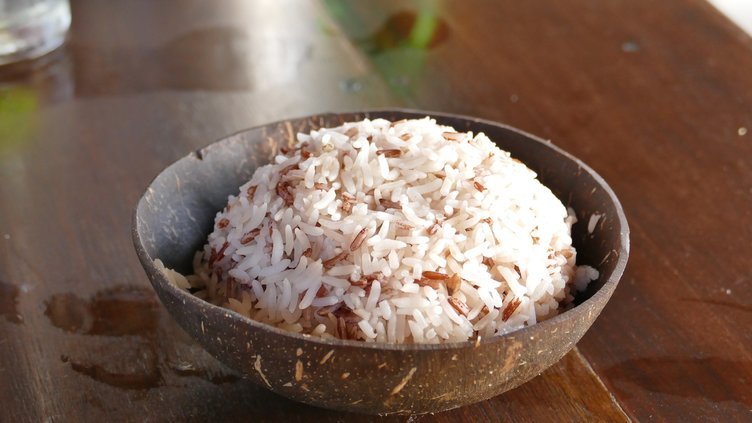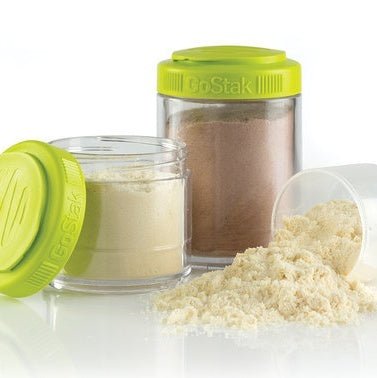Examining the pros and cons of brown rice protein powder. On the hunt for the p protein supplement? Depending on your diet, rice protein powder might be the right choice for you. Brown rice protein powder, which is derived from sprouted brown rice, is among the most popular protein supplements on the market, alongside whey protein (derived from milk) and soy protein (extracted from soybeans).
The Pros and Cons of Rice Protein Powder
For the most part, brown rice protein powder is an excellent and healthy protein supplement. There are a few drawbacks to rice protein powder, but these are easily addressed. Let's take a look at the pros and cons of rice protein powder.
Benefits of Rice Protein PowderOne of the main reasons people opt for rice protein powder is due to dietary restrictions. Plant-based rice protein is naturally dairy free and gluten free, making it an ideal choice for vegetarians, vegans and anyone with celiac disease or gluten intolerance.
Research (such as this study in the Nutrition Journal) shows that brown rice protein is equally as effective as whey protein as a supplement for muscle protein synthesis. For many people, consuming whey protein can cause bloating and gas, and therefore rice protein provides an alternative that is less likely to create gastrointestinal distress.
Brown rice protein powder has many additional health benefits. Like other protein supplements, it can aid in weight loss and maintenance, and help avoid blood sugar spikes. It is packed with antioxidants and high in B-vitamins and fiber. Brown rice protein has even been shown to enhance liver, heart, and kidney function and help regulate cholesterol.
Drawbacks of Rice Protein PowderOn its own, rice protein powder does not provide all the essential amino acids that the body requires. It must be combined with another protein source to form a complete protein and deliver optimum nutritional benefits. Pea protein is a perfect nutritional complement to rice protein. Rice protein is low in lysine, yet high in other essential aminos, while the opposite is true of pea protein. When combined, pea and rice protein offer an amino acid profile that is comparable to whey protein.
While plant proteins are relatively easy to digest, their high fiber content can make them slower digesting than dairy or egg proteins. This can potentially limit the immediate effectiveness of rice protein powder as a post-exercise supplement. The addition of digestive enzymes to rice protein powder can help increase its rate of absorption.
Overall, for vegetarians, vegans, and gluten-free eaters, brown rice protein powder (when combined with pea protein or another plant-based protein) is one of the best protein supplements available. And for anyone seeking a high-quality protein supplement, brown rice protein powder offers numerous health benefits.
Curious to learn more about protein and protein supplementation? Read All About Protein or download our free eBook, the Ultimate Starter Guide to Protein.
FAQ
1. How does the taste of brown rice protein powder compare to other protein supplements?
Brown rice protein powder generally has a slightly nutty or earthy flavor, which some people find more bitter than whey. If you're not a fan of the taste, you can easily mask it by maxing it in a smoothie or protien shake recipe.
2. What is the process of sprouting brown rice to create protein powder and its nutritional impact?
Brown rice protein powder is typically made by sprouting brown rice to increase its nutrient content. To sprout rice, the rice is rinsed and then soaked for 8 to 24 hours. It will then be drained, spread on a damp cloth, and keep in a warm, dark place. The moisture levels will be monitored as the rice germinates (sprouts), typically within a few days. Once sprouted to the desired length, around 1/4 to 1/2 inch, the rice is then milled into a fine powder. This sprouting process can enhance the bioavailability of nutrients in the rice and may also increase the protein content. However, the exact nutritional impact can vary depending on the specific processing methods used by different manufacturers.
3. How to combine rice protein powder with other protein sources for complete protein?
To create a complete protein, rice protein powder can be combined with another plant-based protein source that complements its amino acid profile. Pea protein is often recommended as a complementary protein to rice protein, as it is high in lysine, an essential amino acid that rice protein lacks.





Leave a comment
All comments are moderated before being published.
This site is protected by reCAPTCHA and the Google Privacy Policy and Terms of Service apply.